In early 2024, Moon Kim and her husband took the leap into entrepreneurship, founding Leaf Laundry, a business that breathes fresh air into thetradi ...
Cleanlots: A Journey from $200 to $650,000 Annually
Written by: Carolyn Young
Carolyn Young is a business writer who focuses on entrepreneurial concepts and the business formation. She has over 25 years of experience in business roles, and has authored several entrepreneurship textbooks.
Published on October 20, 2023
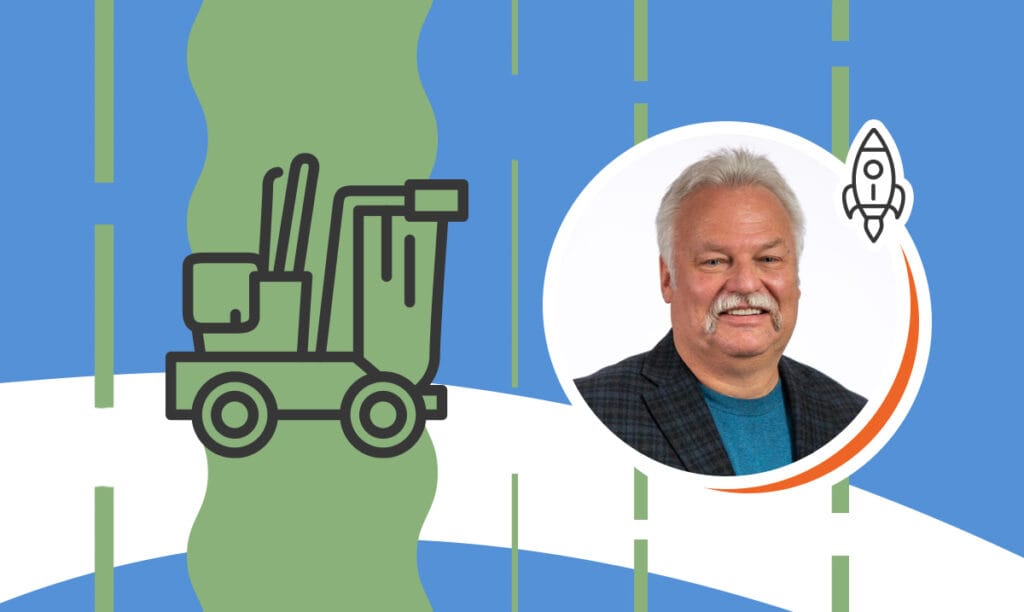
In the world of business, it’s not always the high-tech, flashy startups that make the most impact; sometimes, it’s the simplest ideas, executed with passion and precision, that leave an indelible mark. Today, I had the privilege of sitting down with Brian Winch, the mastermind behind Cleanlots, a unique venture that focuses on an often overlooked aspect of our environment – litter collection outside commercial properties.
Inspired by his father’s side gig and starting with just a $200 investment, Brian transformed a basic idea into a full-fledged business that now boasts an impressive annual revenue of over $650,000. In our candid conversation, Brian delves deep into the challenges he faced, the strategies he employed, and the passion that drove him to create a venture that not only generates profit but also contributes to cleaner, more appealing commercial spaces.
As he nears retirement and reflects on over 40 years of entrepreneurship, Brian shares insights that are both enlightening and invaluable to budding entrepreneurs everywhere. Join us as we explore the journey of Cleanlots and the man who, quite literally, turned picking up trash into a treasure trove of opportunity.
Inspiration from Father’s Side Job
SBS – You said your father’s side job inspired your business. So, how did you refine or adapt his model to make it profitable? What was the story behind that idea? What motivated you?
Brian – Well, I grew up in a blue-collar working-class family. Both my parents worked. My dad was a janitor, and he didn’t make a lot of money, so he did a number of things on the side to supplement the family income. He would cut grass in the summer, shovel snow in the winter, and he would also clean up litter from a nearby shopping plaza.
When I was probably a young teenager, I remember him doing that. He asked me if I wanted to go with him a couple of times just to help him out. I tagged along before I went to school and before he went to work. We would basically walk the exterior property — the parking lot, sidewalks, and any surrounding landscape — and clean up any litter material that people discard in parking lots, like cigarette butts, fast food wrappers, cups, and cans.
He used these unique tools that made it almost as easy as going for a walk. We didn’t have to bend over. We didn’t have to handle anything. Our tools did all the work and actually made it almost as easy as going for a walk. So I did that a couple of times.
And then it was 1981, and I was 21 at the time. I was working a dead-end job at a sporting goods company in the shipping department, and I couldn’t see a future there. I didn’t go to university, and I didn’t have a lot of money. I didn’t have a lot of skills, but I thought, “Wait a second, I enjoyed doing that with my dad. Maybe I could turn that into a business of my own”.
So, just as I started writing a business plan and deciding, I asked him some questions and found out that our prospects or clients were property management companies. We don’t work for individual businesses or small shops; we work with the property management company. I was just about ready to get set up, and he passed away unexpectedly at the age of 61 from a massive stroke.
Handling Loss and Finding Motivation
SBS – So you were that young when he died?
Brian – Yeah, I was 21. It was devastating for my mom and for my two brothers. But it made me more determined to see my idea through and prove to myself and other people that he had something going there and he wasn’t just doing it to make some extra money, but here’s an idea that potentially could be a great business. So, I started it as a side hustle, and within three months, I was making more money on the side than from my full-time job at the sports company. I quit my job, and then I focused on growing the business.
The original intent was to do something simple, just for myself. I didn’t want to have all the headaches of managing other people, so I built the business up to the point where I was working— not long hours, but I was hustling. I was making over $100,000 a year. It was a simple one-man operation.
After about four years, my customers reached out to me and said, “Brian, we need you at more of our properties.” And I thought, “Well, I don’t want to turn down the business because it might open the door to some competitors coming in and taking my business.”
Then, I started hiring some people to do more cleanup for me. My brothers became involved in the business, so it became like a family. We continued to grow throughout the years to the point where we have about 10 or 12 people on staff.
We bill out anywhere from 650 to $700,000 a year, only cleaning up litter from parking lots. We don’t provide any other cleaning services. We don’t do landscaping or snow removal. We just aim to be the best at what we do and be seen as the experts, and it’s been a very successful business model.
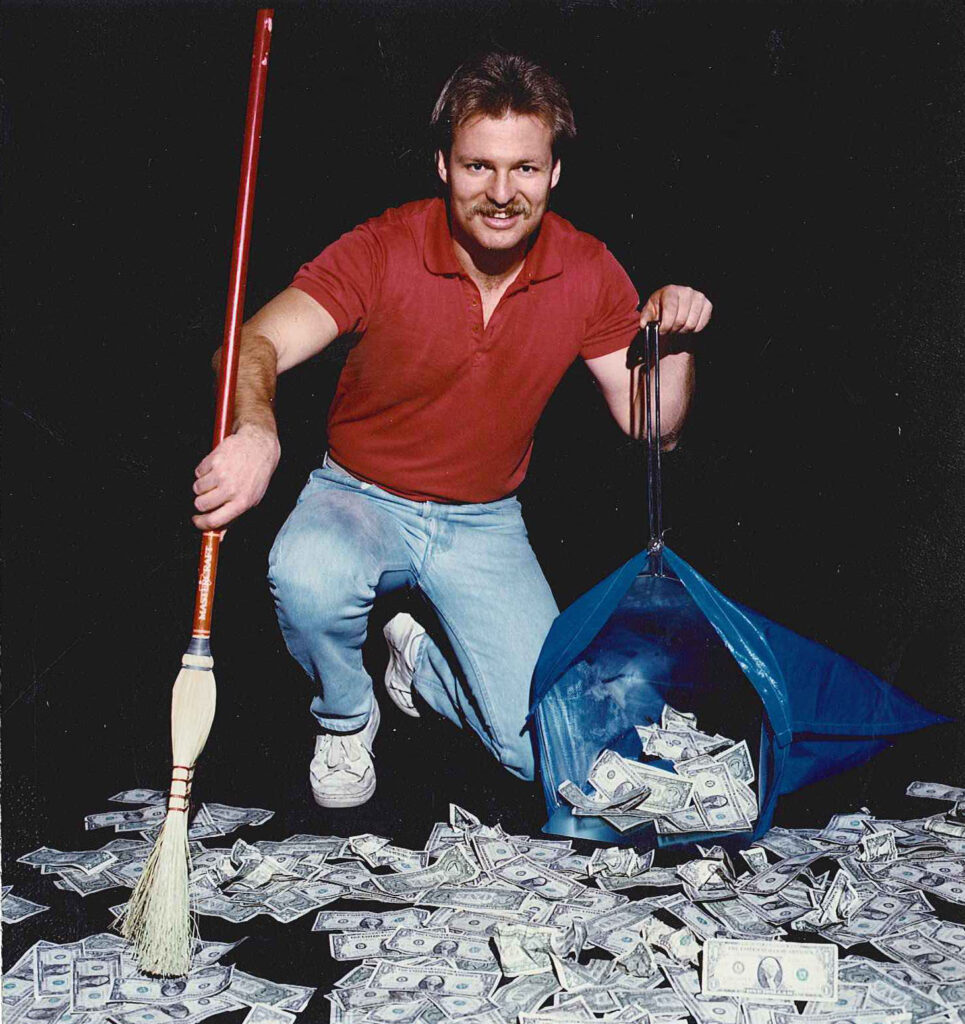
Continuing and Expanding the Legacy
SBS – Was it easier for you to work in order not to think about all of that? Did it somehow help you handle the grief?
Brian – I agree because I felt his presence, that he was there with me when I was going out to clean the lots. I just wanted to make him proud.
SBS – And you certainly did. You continued his legacy. I think he never imagined that it could be that huge.
Brian – Well, I wanted to share. After about four years or so, I realized this would be a great opportunity to share with other people. I mean, he, in his own way, shared it with me, and I grew it into something. I had no prior business experience skills, but I turned it into a six-figure business. So I thought — why not share it, but at the same time, keep it affordable to people who, just like me, didn’t have much money? I’ve had a lot of people over the years tell me, “Brian, you’re nuts. You should sell this as a course for 1000 bucks, 2000 bucks.”
But that eliminates a lot of people who would be interested in starting this business. So, I kept it affordable. Also, I offered free support in my book, Cleanlots: America’s Simplest Business. A lot of people again said, “Brian, you’re nuts. Why are you giving away this advice?” But I enjoy helping other people, and there’s something in it for me at the end of the day besides feeling good about what I’m doing — I can always get a testimonial from them. So, that helps me out.
Embracing Online Presence and Adapting to Client Needs
SBS – You said that it took you four years to develop and build Cleanlots on some level. So, what in those four years were some of the biggest challenges for you?
Brian – I, for one thing, have a passion for this business. I enjoy it. It’s simple work. I’ll be the first to admit it’s not sexy. It’s not glamorous. But hey, fortunes have been made and are being made by people willing to clean up after others. And if you don’t mind doing that, and you feel good about the service you’re providing in your community — cleaning up and making the environment cleaner, safer, a better place — that’s the main thing.
You can see through things to make sure your goals are met. When I started, as I mentioned before, I didn’t have a business education, and I didn’t have many skills. I had to learn how to get on the phone and contact my prospects. I don’t call it cold calling; I call it warm calling because I realized that nobody likes to be sold on a phone, and no one likes to take sales calls.
It’s even easier these days because you can easily find them on the internet. I just give them a brief phone call, introduce myself, and let them know I can give them cleaner, litter-free properties for less money, and I’d love to share some more information on how we do it — just something as simple as that. And then, you start the communication channels.
You might exchange two, three, four, or five emails before you get what you’re really looking for — an address or a site address where you can go and take a look, get back to them with a price for your service, and then go from there.
I also learned the importance of customer service and providing that little extra, giving more than you promised. Anybody can clean. We’ve got a contract to clean up the properties, whether it be three days a week, five days a week, whatever. But if we notice some property damage — there’s some fresh graffiti on a wall, somebody has dumped some furniture at the back of the building — we make a point to take a picture of that with our phone, and we forward that to our clients the next day. In a sense, we’re providing free reporting to make their job easier.
They appreciate getting these reports from us first thing in the morning, so then they can quickly act upon it, as opposed to finding out from somebody else, maybe a day or two later, or from a tenant that’s saying, “Hey, I’ve got graffiti on my wall, why isn’t anybody been here to remove it?”
Here’s also one thing I learned. Some of our clients are used to dealing with these large cleaning companies or janitorial or landscape companies and are trying to get as many services as possible from one vendor. And then you’re trying to be a jack of all trades but winding up as a master of none.
We decided we would focus and be seen as the experts in litter cleanup in our city. As a result, we chose not to get into these other services; they weren’t of any interest to us. So, we point that out to our prospects.
Our clients understand that we’re not there during the day trying to clean up litter from parking lots when businesses are open, and there are vehicles in the parking lot, and at the same time, cut through grass or clear snow in the winter.
We tell our customers, “Hey, our services are provided after hours, with unique hand tools that allow us to clean up more material in less time, thus saving you money. But it’s done at the time of day when there’s no vehicle interference, so we can clearly see and clean all litter material.”
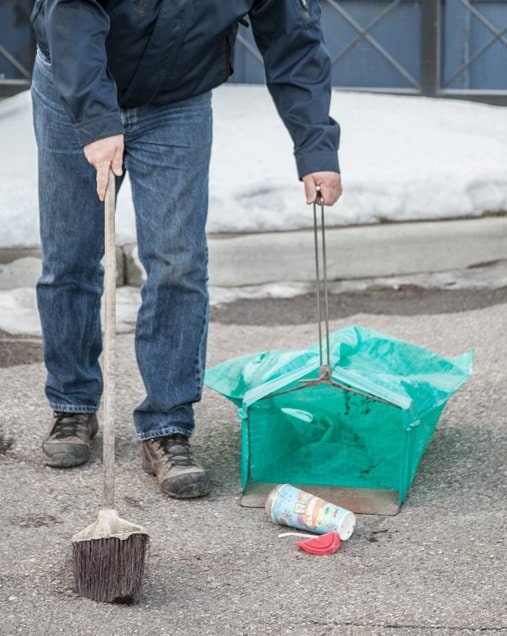
SBS – How did you grow your business from a single-person operation to handling over $650,000 annually? What kind of strategies or decisions were extremely important to start that growth?
Brian – Well, this was back in the early 80s. This was before the internet, so contacts, personal contacts, and networking were really important. And, of course, keeping customers happy. If we had a satisfied, happy customer, and they didn’t contact us, we would reach out to them, saying, “Hey, if you like the service, do you have more properties?” And they’d say, “Yeah, that’s right, we’ve got another three or four, go take a look at it.”
The great thing about dealing with our clients — property management companies — is that they’re in the business of managing property. They manage more than one. Depending on the size of the firm, it could be maybe three, four, half a dozen, or two dozen. So if you’ve got a satisfied, happy customer, they’re going to continue sending work your way.
As long as you provide great service and communication and do more than what you say you’ll do, like what we do with the free reporting, they’ll love you. The reason they do that is because you’re making their job easier. We just focused on making sure our customers were happy in those early days, and then they kept sending us more work.
In those early days, too, we had a display ad in the telephone directory, the Yellow Pages, but that’s become redundant. Nowadays, when I coach my students, the people who buy my books, I say, “You don’t need to be everywhere on social media, but you need to be where your clients are, and that is LinkedIn. And you should have a Google Business profile.”
It always shocks me how many small businesses have been in business for years and have a website but don’t have a profile on Google or any other search engine. This is a lot of low-hanging fruit. It doesn’t cost anything to create a LinkedIn personal profile and a subsequent business page. The same goes for a Google Business profile. You just need to take a little bit of time, maybe watch a tutorial on YouTube.
If you don’t, you’re not going to show up in search. You can do your bit to go and get clients, but you want to make it easy for the clients to find you and then contact you. If you don’t make yourself known and out there, if you’re afraid of getting bad reviews, you’re, in a sense, cutting your own throat.
The good thing, too, is with those reviews, you always have the opportunity to reply or respond. It’s not just a bad review, and then that’s where it ends. There are always diplomatic ways of answering. We are a niche service. We deal with only a very small number of prospects — property management companies. We’re not in the restaurant business where someone’s going to say, “I didn’t like his pizza because I found the toppings were scarce or something like that.” We don’t have to worry about that. As a matter of fact, the general public isn’t going to give us a Google review— it’s going to be our clients. And if your clients are happy, you can send them the link and say, “We’d really appreciate it if you like our service and give us a good review.” And you get great reviews.
Adapting to Challenges
SBS – Over the past 40 years, how has your business model evolved, and how did it change with client needs and everything? You said you need to be more present and aware online, but I assume client needs are still the same.
Brian – Well, I think people are more aware of the importance of clean, litter-free properties, especially after COVID, when many people just tossed their masks, gloves, or sanitary wipes in parking lots. Nobody wanted to walk through that or see that sort of stuff. In a sense, it’s helped us.
For a while, we lost some business because businesses shut down, so the need for cleaning services was reduced until they found out, “Who’s going to clean up all of these?” Then they brought us back. And then, like that saying — when life gives you lemons, you make lemonade.
So, I contacted one of the local TV news stations and pitched them an idea. I showed them, “Well, who’s cleaning up all these? Are you aware of the amount of used PPE that people are discarding outside parking lots, especially outside grocery stores? I’d like to show you.” Long story short, they had a reporter meet me at one of my job sites the next morning, and they did a news story.
We were on the dinnertime news, again the following day in the lunchtime news, and then on their website, and it just blew up right across the country. I was contacted by some reporters from other cities wanting to get more information from me.
So we use that, and then we put that on our website. You just take advantage of a situation. I tell people, “Look, everyone has a story to share.” It doesn’t take much to turn something into a new story. You got to make it, you know, newsworthy.
I learned over the years in business that there’s always a solution. Don’t take “no” for an answer. There’s always a way to turn a “no” into a “yes.” You have to be patient. You have to be persistent. I teach those lessons, too, and provide free coaching for people who buy my book. A lot of people have never been in business before. I laid it out step by step, “This is what you need to do. Hey, if I did it, you can do it too.” I’ve had some remarkable success stories from some of my students.
That’s why I call it America’s Simplest Business. It really is a simple service. It’s almost as easy as going for a walk, and it doesn’t take a lot of intelligence to make this business work other than some patience, persistence, and being passionate about what you’re doing.
Setting Yourself Apart in the Cleaning Industry
SBS – How do you think you are different from the other cleaning companies near you? Or what do you think distinguishes you from the rest?
Brian – Well, we have to use the right tools. We’ve seen some competitors going around with a large trash bag and a hand grabber tool, which allows them to pick up the big stuff. But what about the small items like cigarette butts? We use a very specialized tool, which I reveal in my book, and it’s on my website, too, so people can watch the brief video and see how I’m cleaning up and what tools I’m using.
These tools are very durable, and they allow us to clean up everything from a small piece of cigarette butt right up to a pizza box. We can get in and out in a reasonable amount of time and leave the properties clean. Our clients appreciate that and the extra support — the reporting — that we provide them.
So, you have to use the right tools and do it at the right time of day. I still see some competitors walking around nearby neighborhood shopping classes that I frequent during the week, around noon, and I wonder, “How is this acceptable? How can they do any decent job when so many vehicles are parked in the parking lot on top of a lot of the material that’s supposed to be cleaned?”
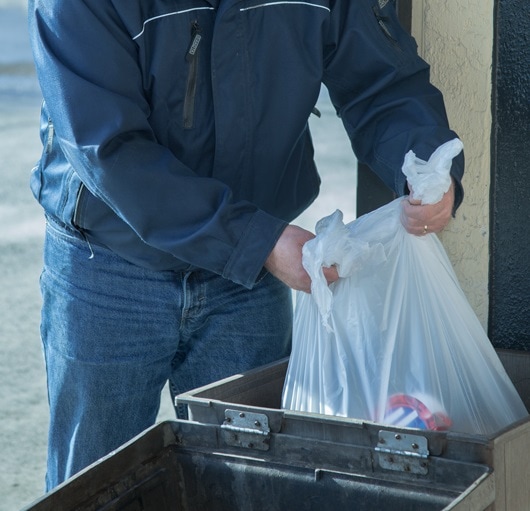
In a sense, you have to educate your prospects. But they become aware of your service and how it is superior, and the extras that you provide them — and we’ve had some clients for 20, 30 years.
Actually, I’ve been doing one building for pretty close to 40 years. I started out with the present owner’s father, and when he retired, his son took over the business. And, every once in a while, we have these phone calls, Richard and I, and we just say, “Where’s time gone?” It’s been almost 40 years since I’ve been cleaning this building for him.
Learning from Setbacks and Experience
SBS – Moving on, can you share something that maybe in some part of your business didn’t go as planned, and what did you learn from that kind of experience?
Brian – Well, it kind of ties in with the last question. In the late 80s, a customer reached out to us and asked us if we could do some other services for them — cutting some grass and shoveling some snow. I was afraid to say no because I didn’t want to lose their litter cleanup business.
So we said yes and did it for a few years, and then we just grew to hate it. That’s not why I got into this business. I didn’t want to do snow removal. I didn’t want to cut grass. Finally, I approached my contact and said, “I’m sorry, we can’t continue providing these other services for you. We want to focus on litter cleanup. That’s our bread and butter. That’s our niche service. And that’s what we want to specialize in.”
We lost one of his buildings because he decided to go with one of the other companies that claim to do it all. And in some cases, the results aren’t too bad. But then he kept this at others because he said, “I don’t want to lose you because I appreciate the service you provide for me. I only asked you if you wanted to do these other services because you wanted to make some extra money.”
I learned from that not to be afraid to say no. The customer isn’t always right. Many people say, “Oh, you have one product, you have to have another, and another, etc.” Yeah, it always helps to have something to upsell or something. But, in terms of B2B and the service we provide, we would rather be seen as the experts than try to be a jack of all trades and wind up a master of none.
Starting a Business with Limited Capital
SBS – You started with $200 of investment. How would you advise someone with very limited starting capital and how they can maximize some small business investment?
Brian – Well, I actually tell people it’s best to start this as a side hustle. Keep your full-time job, which pays your living expenses and daily bills. If you have a little bit of savings, it doesn’t take much to buy the necessary tools, to set up your legal structure, etc. A lot of that is easily done up these days on different platforms.
Then, your focus is to get one client and build from there. You’re going to learn from doing that first building, servicing the property, and dealing with that client. And then, they may send you more work, or you may expand into a second client, etc. Ultimately, it’s up to you. Everyone’s motivation is different. Some people just want to keep a side hustle. Some people, like myself, wanted to grow it into a full-time business. So the opportunity is there for whatever you decide to do.
Finding Passion and Excitement in Your Work
SBS – You also said that you were feeling uninspired at the job that you were doing before starting this side hustle. How important do you think it is that you feel excited about the job that you’re doing?
Brian – I think it’s important that you look forward or don’t dread going to work every day. Everyone has good days and bad days. But I didn’t see an opportunity to advance beyond my job at the time. I’ve been independent. I wanted to do things for myself, create things for myself, control my own working hours, etc. I get a lot of job satisfaction doing what I do, as opposed to the job I had back in 1981.
Envisioning the Future
SBS – If you plan to retire, how do you envision the future of Cleanlots? Do you believe it will evolve and become different somehow, or will you continue doing it as much as you can? What are your projections for the future?
Brian – I think I will continue doing it in some form.
SBS – Like a supervising or something?
Brian – Of course, as long as I have my health, but I’ll be honest, I’ve scaled back my hours. I don’t go out and do as much cleaning and walking these parking lots as I used to. Still, I do about three hours every day because it’s easy work. It’s like I’m going for a walk. I’m getting paid, I’m getting fresh air. Why should I join a gym when I get this free thing, and I get money?
But I’m focusing more on sharing this opportunity with other people, coaching them, and helping them out. I get a lot of satisfaction from that as well. I plan on continuing to do that as long as I can.
Work-Life Balance and Priorities
SBS – What do you think is important for ensuring a work-life balance?
Brian – Being in control of how many hours you work. Everyone’s circumstances are different. About ten years ago, I coached both my boys hockey team. So, I had to balance my work, social life, and the boys’ coaching. And I managed to do that. If you’re working for yourself, you’re ultimately in control of your time, as opposed to working for a boss, and he’s demanding more and more of your time.
Advice for Your Younger Self
SBS – What advice would you give yourself if you could go back to 1981? Is there anything that you will change?
Brian – Well, I don’t really have any regrets. It’d be easy for me to say I should have studied more in school. I should have done that. But then, that would have led to a different future. And yeah, who knows, it might have been brighter. But I really enjoy doing what I’ve been doing for the past 40 years. So, I don’t look back with regrets.
SBS – Now, that is the most important thing to hear. I don’t think many people can say they are satisfied with their choices or the life they have made over the years. So you’re a lucky man, if I may say that. If heaven exists, I really believe that your father is extremely proud of you because you took an awful life tragedy and turned it into something golden — not because of the money, but because of the legacy. I wish you all the luck and a long and healthy life!
Comments
Leave a Reply
Subscribe to Our Newsletter
and gain insider access to cutting-edge business insights and trends.
Featured Resources

How Moon Kim Built a Modern Coinless Laundry Business
Published on January 8, 2025
Read Now
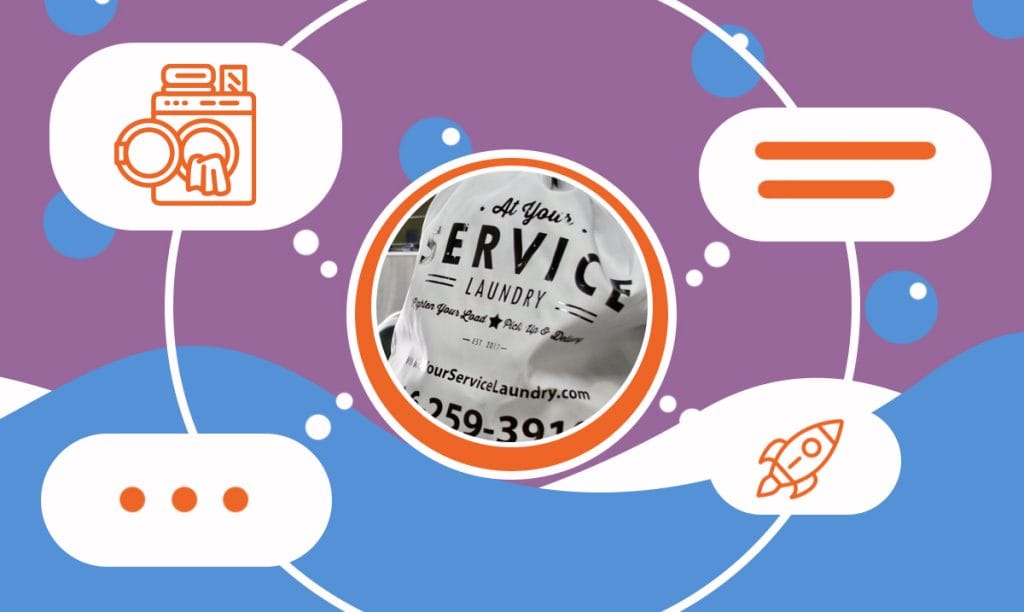
How Mark Mraule Built Sacramento’s Premier Laundry Service
Published on October 11, 2024
In this interview, we sit down with Mark Mraule, the owner and operator of Greater Sacramento’s leading wash-and-fold laundry delivery service and ...
Read Now
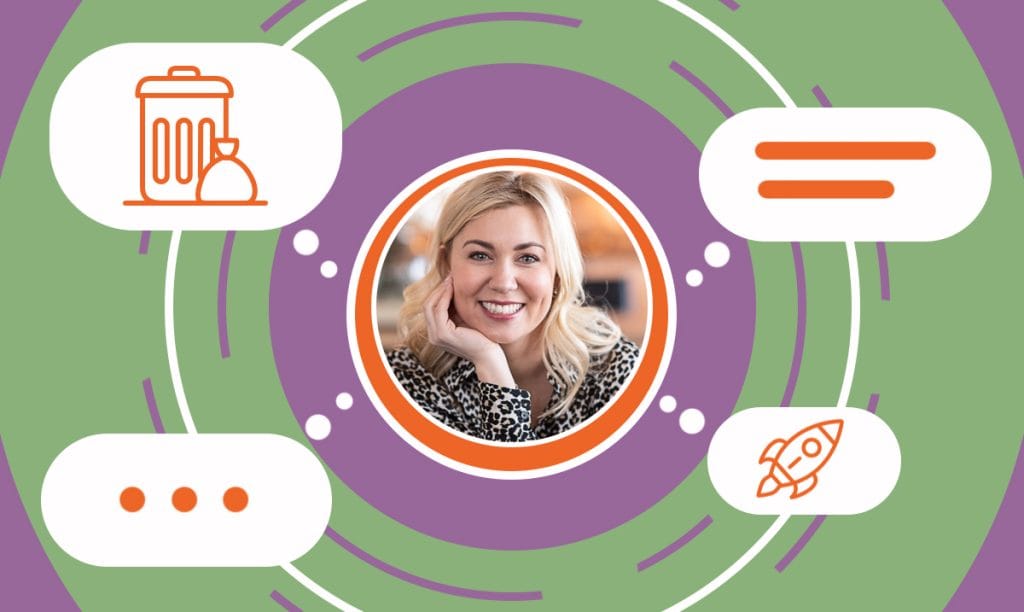
How The Junkluggers of Greater Seattle Is Transforming Junk Removal
Published on August 19, 2024
In this interview, we have the pleasure of speaking with Chase and Maria Costello, the husband-and-wife duo behind The Junkluggers of GreaterSeattle ...
Read Now
Thanks for sharing my story. I hope my entrepreneurial journey inspires others to take one of their own!